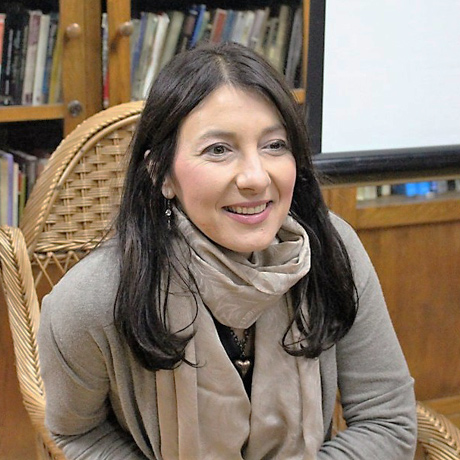Illness as Life’s Biggest Challenge
’ A healthy person has a thousand wishes, a sick person only one...’
A sentence ’As long as we are alive and healthy everything else is easy’ sounds rather familiar. However, though physical and mental health is highly appreciated in our community, at least declaratively, unfortunately in practice they are often neglected. We become fully aware of the importance and value of health only when our personal or health of someone close to us is more or less disturbed.
Illness has a strong potential to change our personality, our way of thinking and reacting in different relationships and situations. Whether this change will be for better or for worse greatly depends on the person who is ill and also on the level of support they receive from their family, friends, community, society as a whole. An ordinary cold, a severe influenza or stomach virus, light or more serious injuries of body parts can significantly impair our daily functioning and prevent our usual routine. However, what happens when a more complex illness all of a sudden happens to us, members of our families or close friends?
Our first reaction when we face a severe illness such as heart attack, stroke, malign diseases, severe body injuries and disabilities is always a shock which may last from a few hours to a few days. These are the moments when we may experience numerous physical and psychological manifestations, and conditions such as dizziness, fatigue, trembling, sweating, accelerated pulse, high pressure and also the feeling of chills or freezing are quite common. Physical manifestations are very often accompanied by the condition of psychological shock characterized by mental confusion, difficult concentration, tremendous fear, tension, insomnia, and also a strong emotional excitement such as crying, agitation and restlessness.
Suffering and long-lasting coping with a severe illness may cause strong distress, as well as rather serious anxious and depressive reactions. It is not rare that sick persons, especially in underdeveloped societies, are stigmatized and neglected, which additionally complicates the process of facing and adapting to the life they must live with their illness. Accordingly, people protect themselves from facing the diagnosis of severe illness in various ways. In the first phase of shock and during the process of adaptation to life with illness, limitations and changes that illness implies, different defence mechanisms are recognized and some of the most common are:
- denial – non-acceptance of the established diagnosis (‘It’s not true’, ‘It’s not happening to me’, ‘It must be a mistake’, ‘They must have replaced the findings’).
- suppression – avoiding thinking about the established diagnosis and the upcoming treatment.
- projection – causes of an illness are ascribed to other people or circumstances (‘Others were bad to me and that’s why I got sick’). People sometimes project to medical staff all complex and yet unrecognized feelings they experience due to illness and situation they find themselves in. The best example of this is the famous conclusion ‘It’s doctors’ fault because they did not detect the illness on time’ or ‘Medical staff made a mistake.’
- displacement – unpleasant and unrecognised feelings are redirected towards another object or situation. An intense fear of the underlying illness is shifted to another illness or part of the body (‘I have had strong headache for days,’ ‘I feel pain in my chest’, ‘My whole body aches’).
How complex it is at first to face the fact that you or somebody close to you suffers from a severe illness additionally depends on different objective and subjective factors.
The objective factors related to the type and nature of an illness are:
• severity of the illness, or appearance of visible or less visible symptoms and also presence of pain or negative effects of treatment, and the like.
• (im)possibility to control the illness and symptoms,
• change of usual functioning, daily routine and habits,
• level of disability and functional damage (threat to independence, autonomy, personal dignity),
• impact on different roles in life – social, working/professional,
• uncertain prognosis,
• treatment duration and (in)ability to rehabilitate,
• impact of illness on the functioning of the ill person’s family
• impact of illness on economic safety and stability of the ill person and their family.
Subjective factors relate to personality traits, locus control and subjective assessment of degree of vulnerability to disease, mechanisms of overcoming and defending in dealing with various stressful and crisis situations that an ill person has already experienced and uses in the current situation when they are ill.
In psychological terms, an illness is a crisis situation in life. However, any crisis, in addition to being a loss and threat, can be a challenge and a chance for growth and development, an opportunity for intrapsychic change for the better, and the use of more effective overcoming and defence mechanisms. The experiences of many people who have faced severe illnesses and disabilities show that they have not stopped them in creative creation, intellectual advancement, self-empowerment and emotional maturation, in shifting the boundaries of (im)possible functioning and achieving personal aspirations.
Instead of conclusion: Preserve your health while you have it! How – many of you will ask?
By regular systemic exams, moderate and healthy diet, physical activity, walks, moving in general, avoiding risky health behaviours (smoking, alcohol, consuming psychoactive substances and excessive amounts of free sugar), resting and good sleep, applying different techniques of relaxation as a way of neutralizing everyday life stress and complex emotions and cultivating a special life philosophy that brings peace and rational thinking.

AUTHOR
Tamara Klikovac
psiholog, docent i psihoterapeut, Univerzitet u Beogradu, Filozofski fakultet – Odeljenje za psihologiju